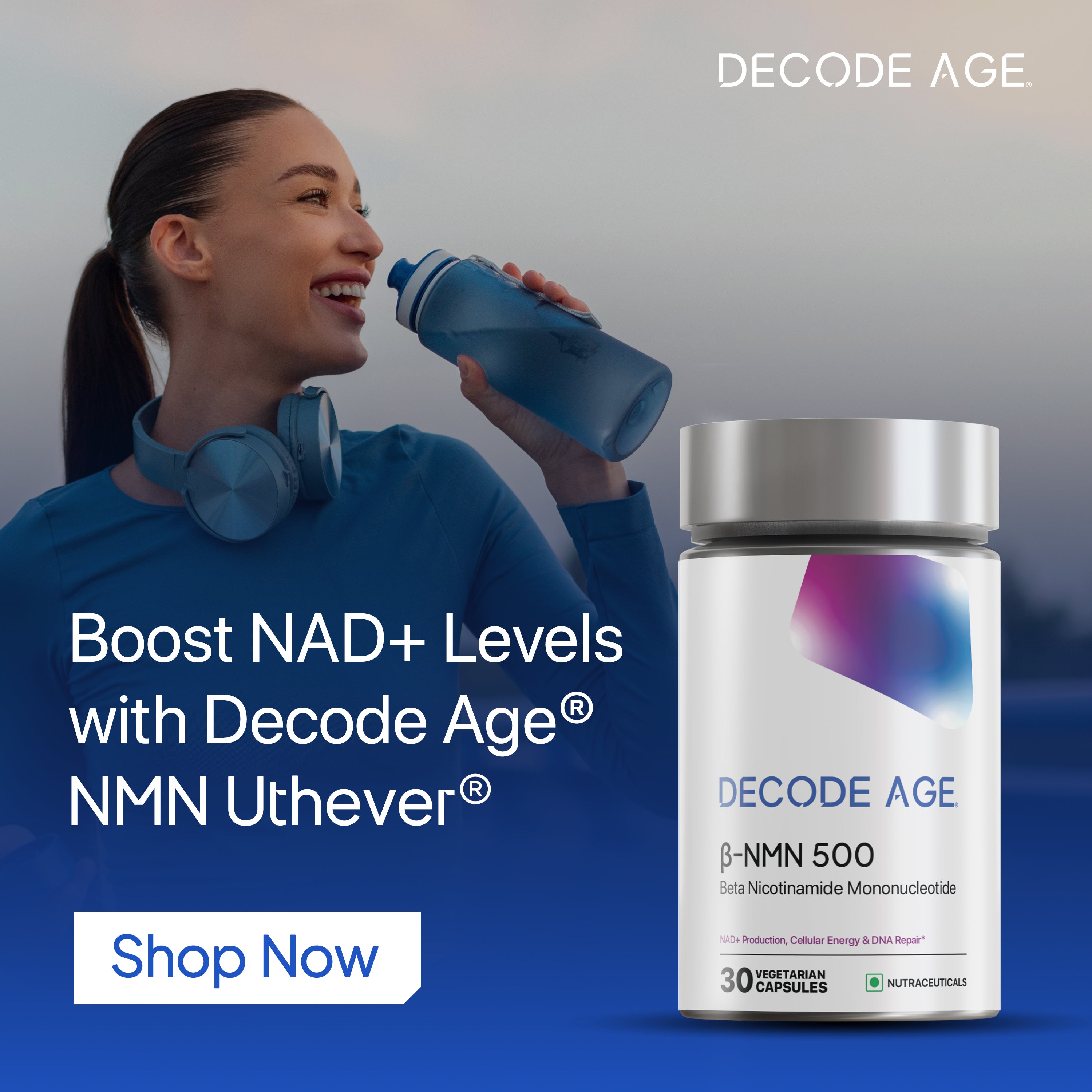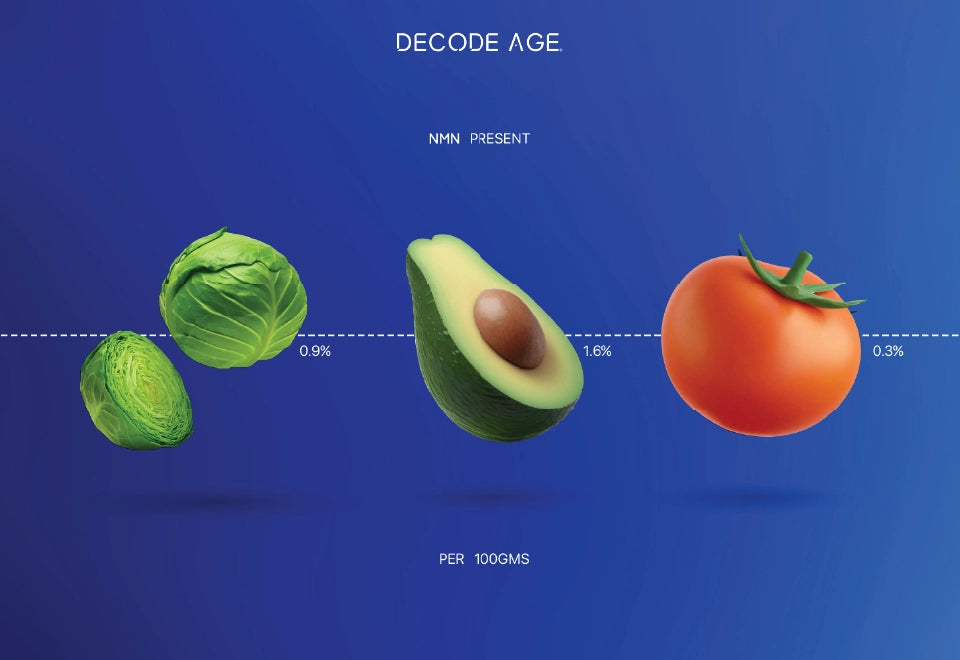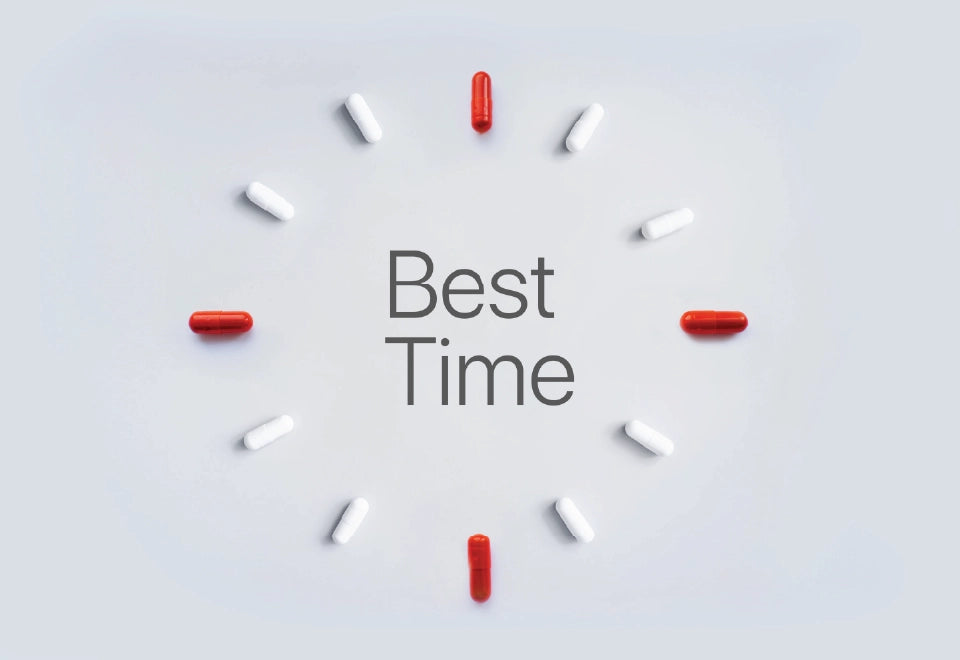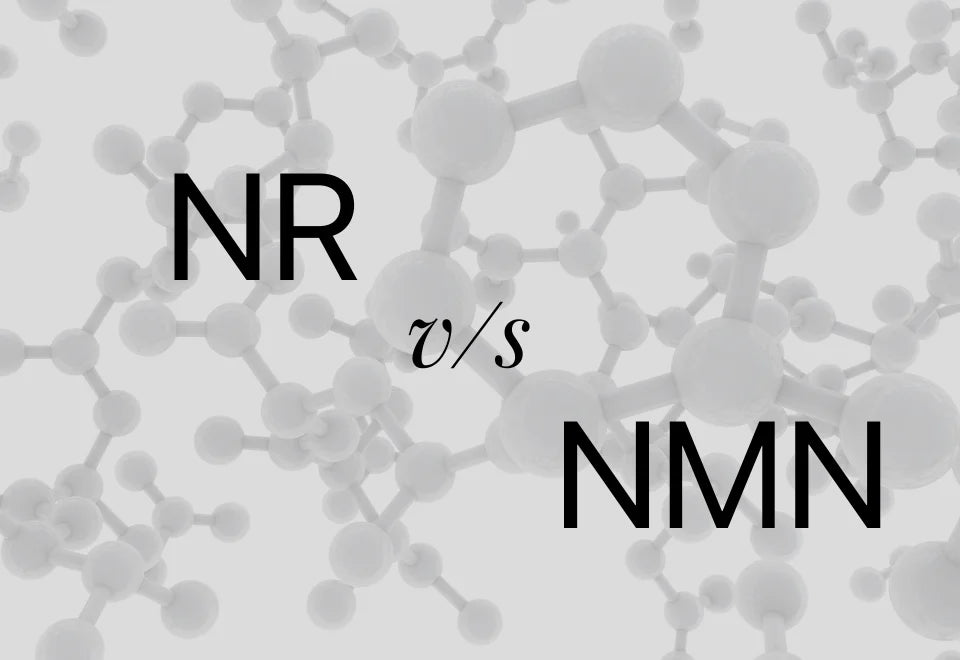Ageing is inevitable, but how we age is not. One molecule at the center of healthy ageing is NAD+ (nicotinamide adenine dinucleotide). It’s a critical coenzyme found in every cell of our body and is responsible for essential functions like energy metabolism, DNA repair, and gene expression. Without it, cells struggle to perform efficiently, resulting in accelerated ageing and a higher risk of age-related diseases.
The Role of NAD+ in the Body
NAD+ is more than just a cellular energy currency. It acts as a vital switch for sirtuins, a group of proteins that regulate metabolism, stress resistance, and inflammation. NAD+ is also deeply involved in mitochondrial function, acting as a co-factor in the production of ATP—the energy molecule that powers all biological processes. When NAD+ levels drop, mitochondria stop working efficiently, oxidative stress increases, and overall vitality decreases (Imai S et al., 2014).
As David Sinclair, Professor of Genetics at Harvard Medical School, puts it:
“Without NAD+, we’re like a car with a dead battery.”
Why Does NAD+ Decline with Age?
- Increased NAD+ Consumption: With age, the amount of DNA damage in cells rises. PARPs, which are DNA-repairing enzymes, consume NAD+ rapidly during the repair process. Chronic inflammation, common in older adults, also increases the need for NAD+ (McReynolds M R et al., 2020).
- CD38 Enzyme Activity: Research has shown that CD38, a NAD+-consuming enzyme, becomes more active with age and inflammation. CD38 degrades NAD+ at a faster rate, making it harder to maintain optimal cellular energy levels (McReynolds M R et al., 2020).
- Reduced Synthesis Efficiency: The body's ability to convert dietary precursors like tryptophan and niacin into NAD+ becomes less efficient over time. This inefficiency is due to reduced enzyme activity and nutrient absorption that occurs with ageing (McReynolds M R et al., 2020).
- Mitochondrial Dysfunction: Ageing leads to damaged mitochondria that are less capable of recycling NAD+. Poor mitochondrial health not only decreases energy output but also impairs the NAD+/NADH ratio essential for redox balance (McReynolds M R et al., 2020).
How do you know if your NAD+ levels are low?
You may experience the below mentioned symptoms if your NAD+ levels are low.
- Chronic fatigue even after adequate rest
- Cognitive decline, memory issues, or mental fog
- Weakened muscle recovery and endurance
- Premature skin ageing such as fine lines and sagging
- Sluggish metabolism and increased belly fat
Ways to Boost NAD+ Levels Naturally
Natural NAD+ Sources in Diet
Foods such as avocado, broccoli, cabbage, and mushrooms contain small amounts of NAD+ or its precursors. These foods also provide antioxidants that protect against oxidative stress, indirectly preserving NAD+ levels. Sardines and salmon are especially rich in Vitamin B3, aiding natural NAD+ synthesis. Though dietary sources can’t completely restore NAD+, they help support long-term health as part of an overall approach to healthy ageing.
Exercise – The Mitochondrial Multivitamin
Regular physical activity stimulates NAMPT, a key enzyme in NAD+ biosynthesis. Endurance and resistance training have both been shown to increase NAD+ levels by enhancing mitochondrial biogenesis and improving metabolic function. This makes exercise one of the most effective, natural NAD+ boosters.
Intermittent Fasting
Fasting activates sirtuins and AMP-activated protein kinase (AMPK), both of which rely on NAD+ for optimal performance. It also reduces inflammation and CD38 activity, allowing more NAD+ to be preserved and utilized for repair and regeneration.
Limit Alcohol and Manage Stress
Alcohol consumption puts a strain on the liver because it requires large amounts of NAD+ for detoxification. This ongoing demand can significantly reduce available NAD+ levels over time. Chronic stress adds to the burden by increasing cortisol and oxidative stress, both of which increase NAD+ usage in the body. Regular alcohol intake combined with unmanaged stress can speed up cellular ageing and energy decline. Managing both effectively can prevent unnecessary NAD+ depletion.
NAD+ Supplements
NMN Supplements (Nicotinamide Mononucleotide)
NMN is one of the most direct and bioavailable NAD+ precursors. Once ingested, NMN quickly enters cells and converts into NAD+, restoring cellular energy. Human clinical trials have shown NMN improves muscle performance, cardiovascular function, and insulin sensitivity in older adults.
Decode Age’s NMN formulations combine purity with precision. Decode Age’s NMN contains the β-form of NMN, which shows superior stability and absorption. This form delivers more consistent results in boosting NAD+ levels and cellular energy compared to generic NMN formulations.
Resveratrol and NAD+: A Synergistic Duo
Resveratrol, a polyphenol found in red grapes and berries, activates sirtuins but is only effective when NAD+ is present. Taking resveratrol with NMN ensures that sirtuins remain active. This activation supports mitochondrial health, reduces inflammation, and may even extend lifespan as shown in multiple animal studies (Gertz M et al., 2012).
This powerful duo mimics the effects of calorie restriction, a well-established method to boost longevity.
Niacin and the “NMN vs Niacin” Debate
Niacin (Vitamin B3) has long been considered a NAD+ precursor. However, it causes skin flushing and needs multiple enzymatic steps to convert into NAD+. NMN, on the other hand, skips several steps, offering a faster and more targeted increase in NAD+ levels. While niacin is still beneficial, it’s less efficient than NMN for age-related decline.
Conclusion: Anti-Ageing Begins with NAD+
Boosting NAD+ levels naturally or through supplementation is one of the most promising strategies to support healthy ageing. By enhancing cellular repair, energy metabolism, and mitochondrial function, NAD+ plays a key role in maintaining youth at the cellular level. Whether through NMN supplements, resveratrol synergy, diet, or lifestyle changes, restoring NAD+ could very well be the foundation of effective longevity.
FAQs
What are the best NAD+ boosters available today?
The most effective NAD+ boosters are NMN (Nicotinamide Mononucleotide), NR (Nicotinamide Riboside), resveratrol, and niacin. Among these, NMN stands out due to its ability to directly and rapidly increase NAD+ levels inside cells. Its superior bioavailability and minimal side effects make it a preferred choice for individuals looking to enhance energy metabolism and cellular repair. NR also supports NAD+ but may require conversion steps. Resveratrol, though not a direct precursor, supports the action of NAD+-dependent proteins. Niacin is more affordable but less efficient and may cause side effects like flushing.
Are NAD+ supplements safe for daily use?
Yes, clinical research supports the safety of daily NAD+ supplementation, especially with NMN and NR. Doses ranging from 250 mg to 500 mg per day have been shown to be well-tolerated in both healthy adults and older populations. However, individuals with specific health conditions or those taking other medications should consult with a healthcare provider before beginning long-term supplementation.
Which is better: NMN vs Niacin?
NMN is generally considered more effective for boosting NAD+ levels, especially in the context of ageing. It enters cells more easily and converts directly into NAD+ with fewer steps. Niacin, while a precursor, takes a longer metabolic route and is often associated with uncomfortable side effects like skin flushing. NMN also tends to have a more significant impact on mitochondrial function and energy metabolism, making it the preferred option for targeted anti-ageing and longevity support.
Can I rely on food as a natural NAD+ source?
While certain foods can help maintain NAD+ levels by providing essential vitamins and antioxidants, they typically contain only small amounts of NAD+ precursors. This makes it difficult to achieve the significant NAD+ boost required for noticeable cellular repair and energy support through diet alone. In contrast, supplements like NMN deliver a concentrated and bioavailable form of these precursors, allowing for more efficient and measurable increases in NAD+ that can directly support mitochondrial function and slow age-related decline.
Is resveratrol and NAD+ supplementation good for longevity?
Yes, combining resveratrol with NAD+ precursors like NMN can offer powerful anti-ageing benefits. Resveratrol activates sirtuins, a class of proteins that regulate inflammation, DNA repair, and metabolic health—but it requires NAD+ to work effectively. When paired with NMN, this combination supports mitochondrial health, improves cellular stress response, and mimics the effects of calorie restriction, which is known to extend lifespan in animal models. This makes it a potent strategy for supporting longevity and delaying the onset of age-related diseases.






























Leave a comment
All comments are moderated before being published.
This site is protected by hCaptcha and the hCaptcha Privacy Policy and Terms of Service apply.